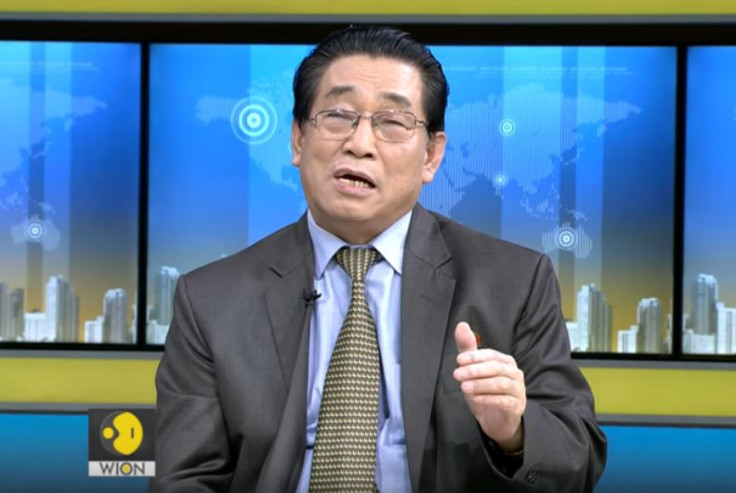North Korea ready to halt nuclear programme but lays out tough demands to US
Pyongyang's ambassador to India Kye Chun Yong says the US should remove its nuclear-capable weapons from the Korean peninsula first.
North Korea is willing to halt its nuclear and missile tests if the US withdraws the nuclear-capable weapons it has deployed in and around the Korean peninsula and halts military exercises in the region, Pyongyang's ambassador to India has said.
Ambassador Kye Chun Yong told Indian news channel Wion on Wednesday, 21 June, that a complete denuclearisation of the Korean peninsula can ensure smooth dialogue between the US and his country.
"Under certain circumstances we are willing to talk in terms of freezing our nuclear and missile tests. For instance, if the American side completely stopped big, large-scale military exercises temporarily or permanently, then we also temporarily stop our missile tests," the diplomat said.
This is the first time in recent months after tension between the rogue nation and the US has escalated over the former's missile and nuclear tests that a North Korean official has made such an offer.
South Korea and US say their annual military exercises are defensive in nature. The United States has about 28,500 troops in the South. Additionally, US warships USS Carl Vinson and USS Ronald Reagan are deployed in the Japanese waters in close proximity to the Korean peninsula.
Ambassador Kye added that removing nuclear weapons from South Korea alone would not be enough because the US has weapons in other strategic locations in the region from where it can launch attacks on the North.
"The US has deployed weapons in and around the Korean peninsula, in Japan, Guam and other small islands that belong to America. So they can very easily target [North Korea].
"So what is our demand...let's talk denuclearisation of Korean peninsula and also other places," he said.
Kye accused the US of threatening his country as US President Donald Trump said in the past that they have many many options on the table, including the military way.
"So we should be ready for dialogue and military way. In certain circumstances if our demands are met, we can negotiate in terms of weapons testing."
Kye explained that his country's ongoing nuclear programme was "an arduous choice, an inevitable choice to prevent another Korean war in the region".

The DPRK always feels threatened of an US invasion like the one in 1945 when Americans had occupied territory, the ambassador said using the official name for North Korea.
If another Korean war happens, it will be "a nuclear war, a fratricidal war", he noted and added: "So at any cost we have to prevent another Korean war."
Pyongyang's undeterred nuclear pursuit has brought it under heavy sanctions imposed by the United Nations as well as other countries, including the US and South Korea.
The ambassador said that Pyongyang was also in favour of denuclearisation of the region as he demanded that the sanctions be withdrawn.
"As a small country that North Korea is, we do not possess very dangerous weapons," Kye said, comparing the US deployment of nuclear-capable weapons – including nuclear submarines, nuclear-powered aircraft carriers and nuclear-capable bombers like the B-1B – in South Korea, Japan and in in and around the Korean peninsula.
"US first deployed nuclear weapons in South Korea in 1957 and then more than 1,000 weapons were deployed. South Korea is spread over 100,000 sqkm area and the density of weapons deployed in the country is very high," the ambassador said explaining the wide gap in its nuclear capability and the US.
He pointed out that DPRK was the first to propose denuclearisation of the Korean peninsula, but nobody paid heed so they had to begin developing their own weapons to achieve self-reliance.
"Nuclear weapon is a deterrent force, but it should be dismantled across the world," he said.
When asked about DPRK's allies, the ambassador said that China is a friend and so is India. The Trump government is trying to pressure China to use its influence on the North to deter the reclusive regime from conducting any more nuclear and missile tests.
The ambassador, meanwhile, also advocated that India should be made a permanent member of the UN Security Council, pointing out that the UN needs to change the way it has been functioning. He however, did not elaborate on what changes in particular he was referring to.
© Copyright IBTimes 2025. All rights reserved.





















